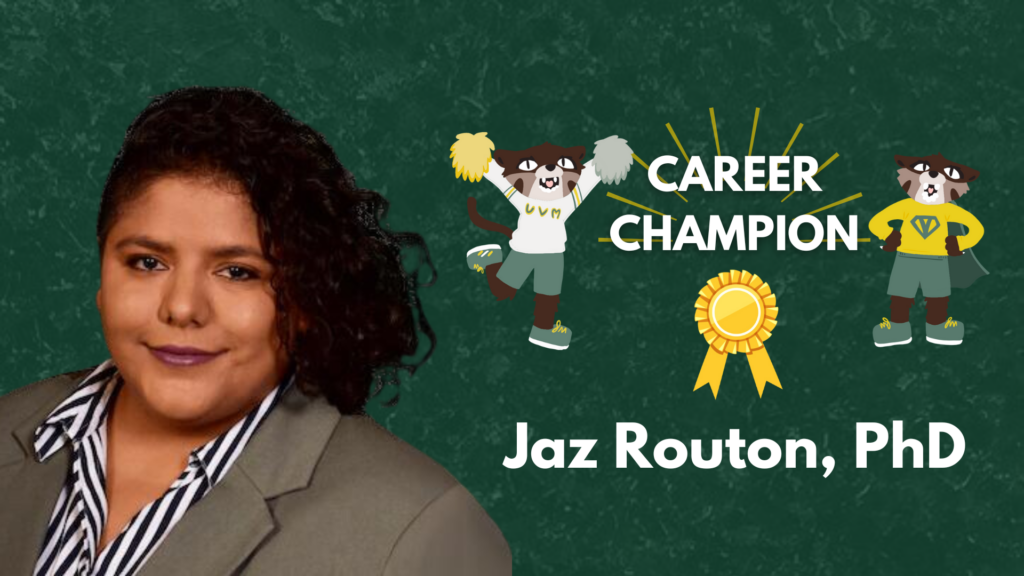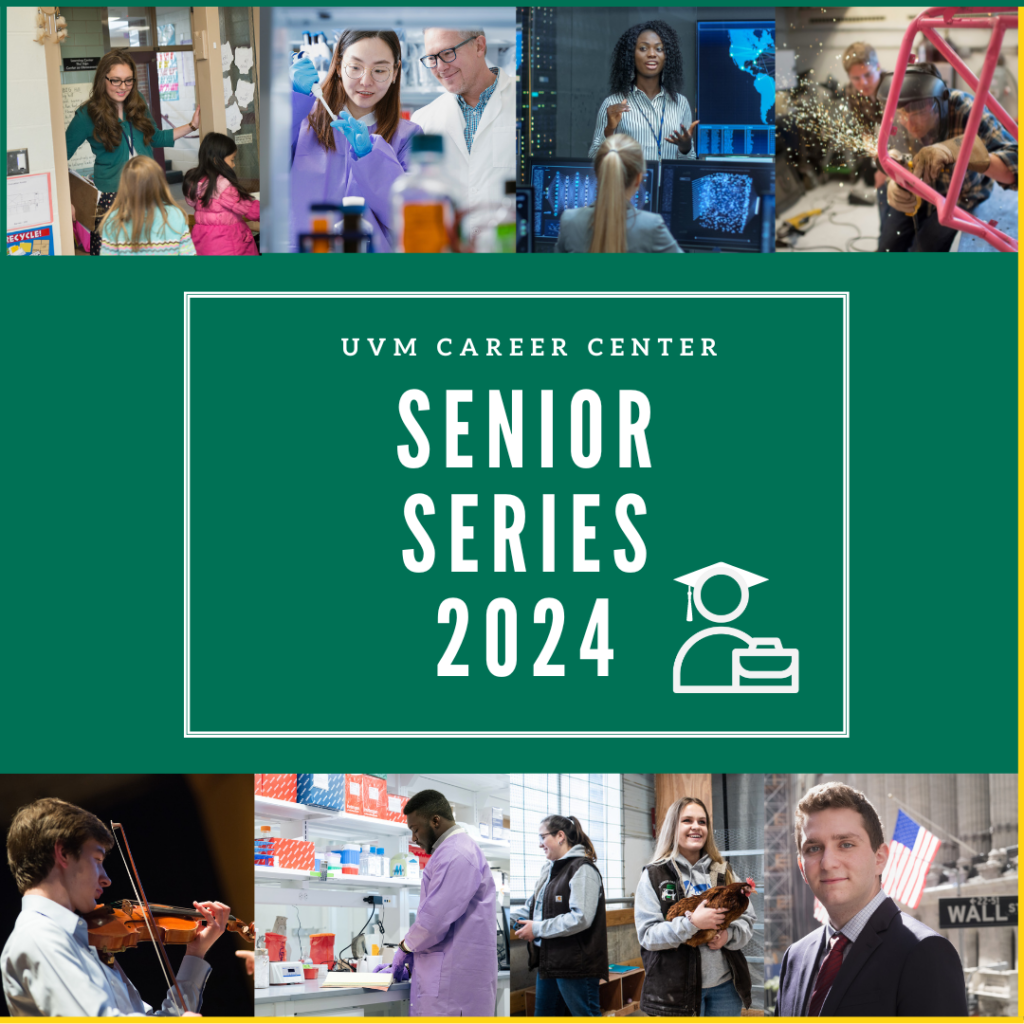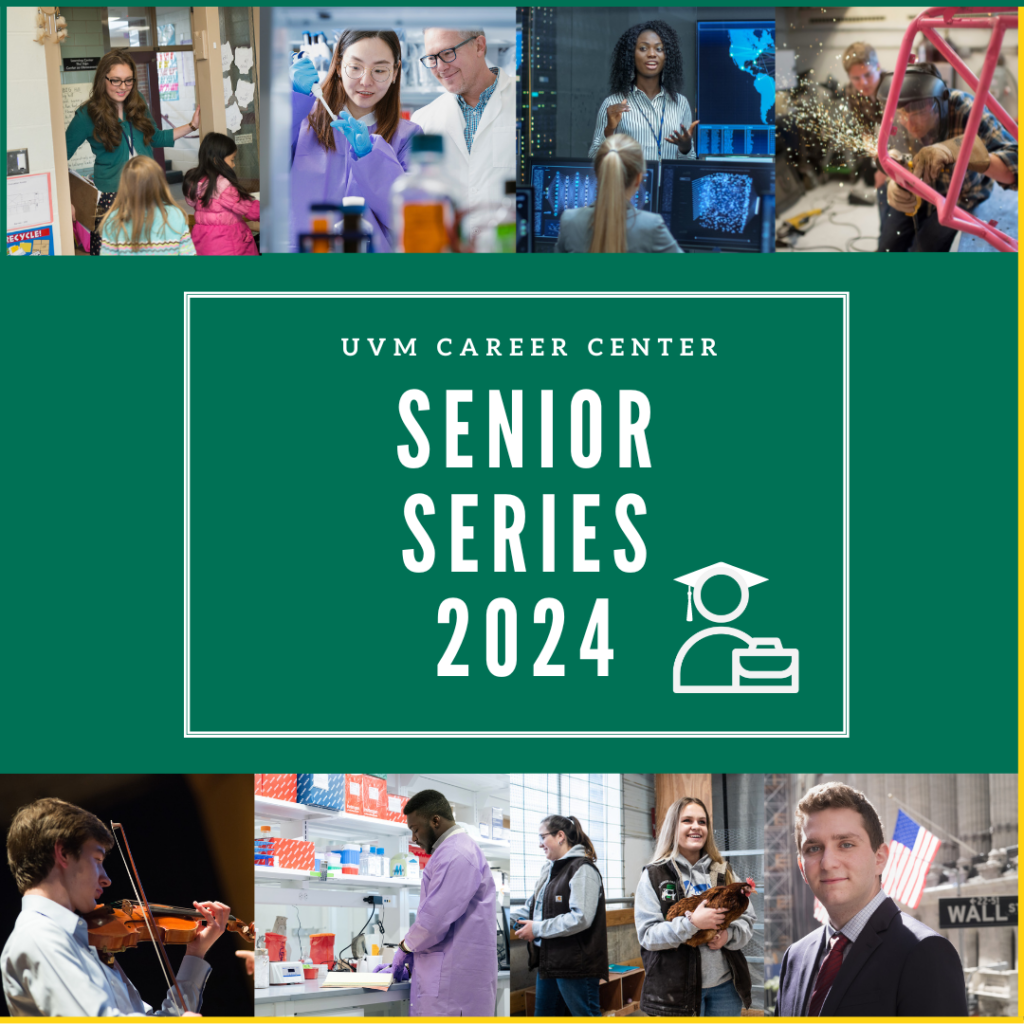An interview with Jaz Routon, the Career Center’s 2024 Faculty Career Champion Award Recipient

Jaz Routon, PhD, a lecturer in Human Development and Family Services in the College of Education and Social Services, has been awarded the Career Center’s Career Champion Award for her outstanding dedication to supporting students in their career paths. In our interview, Routon shares their approach to empowering students and some of the best career advice they’ve been given in their career path. “Change is scary, even when you know you are making a good decision,” says Routon. “Do not let the fear of change stop you from making positive moves in your life.”
How does it feel to win the Career Champion Award?
I am honored to be selected for the Career Champion Award but could not have done this work alone. I must credit my teaching assistant, Arima Minard, many guest speakers, and our UVM and community partners who supervised our HDFS interns throughout this academic year.
What is your approach to supporting students in their career path?
My primary approach was demonstrating to the graduating seniors that their career trajectories did not need to be linear. I wanted to ease the stress and anxiety associated with graduating and figuring out the next steps. I invited helping professionals (such as counselors, mental health professionals, social workers, and clinical psychologists) to elaborate on their career paths and the twists and turns leading them to their current roles. I wanted the students to understand that what success looks like is diverse. I wanted the seniors to know there are no wrong turns because each step will give them experience and insight to inform and benefit their next step. It’s never too late to follow a dream.
What motivates you to go above and beyond to support a student’s career development?
In my first year leading the HDFS internship capstone course for our seniors, I realized that students were unsure what to do with Human Development and Family Science after graduation. Although the majors learn about numerous helping professions early in the program, they are not given explicit directions on exploring these options. I also remembered how hopeless I felt at the end of my undergraduate years and how much I could have benefited from this type of guidance. To help them better prepare, I asked what information the students wanted or needed, and I worked to meet those requests. We covered resume building, cover letters, recommendation letters, types of graduate degrees, job readiness, and career exploration, to name a few. I provided the students with various links for career and graduate school exploration. The students even learned about budgeting and received a crash course in Excel.
How do you foster a sense of confidence, courage, and curiosity in students regarding their career goals?
When the students first start at their internship sites, they think they know with certain which population they want to work with in the future and have a good idea of what they may want to do. However, the internship experience can sometimes change their perception altogether. For instance, I’ve had interns who thought they wanted to work with children only to find that they did not enjoy doing so or have the patience needed. Or, I’ve had an intern who was interested in working with the aging population but found they could not deal with the grief and loss when a client passes. When their original perception changes, the interns feel a sense of loss, confusion, and concern about what to do next – especially if they had spent their undergraduate years expecting to go into a specific helping field. However, I reiterate how critical it is to gain this insight and grow from it. I hope this has built courage and curiosity to keep seeking a path that feels right to them. I also teach the students to stand in their privileged social locations to push for change in the helping field. I think this has helped build confidence in their ability to make positive change and impact on individuals, families, and communities.
What’s the best career advice you were ever given?
That change is scary, even when you know you are making a good decision. Do not let the fear of change stop you from making positive moves in your life.
What’s the most important piece(s) of career advice you give to students?
To retrain your brain about “failure” because no matter what, you have gained experience that can serve you.
How can other staff support students in their career pursuits?
Making efforts to engage with campus and community partners deliberately and consciously in a way that does not only serve the University. As a land grant University, faculty and staff must be critical and consider how their teaching techniques and assignments can serve the community. Doing so builds trust and social capital that is highly integral to career development.








